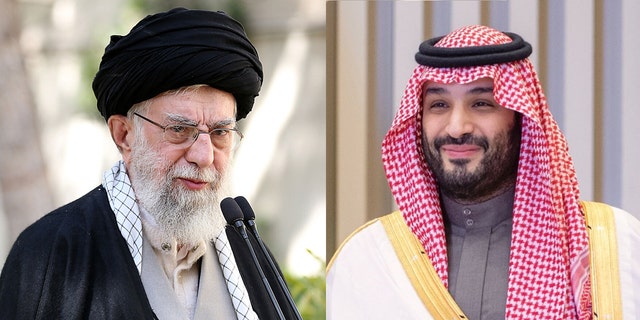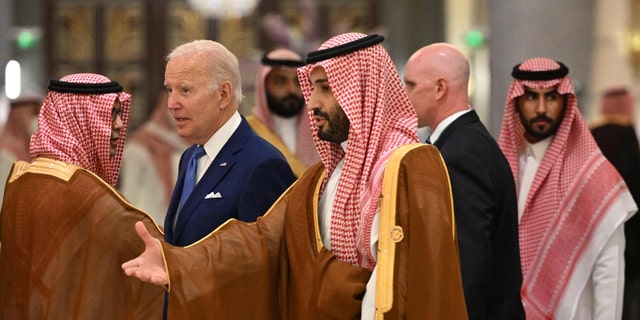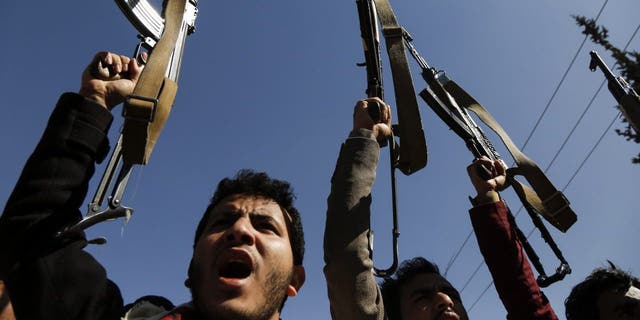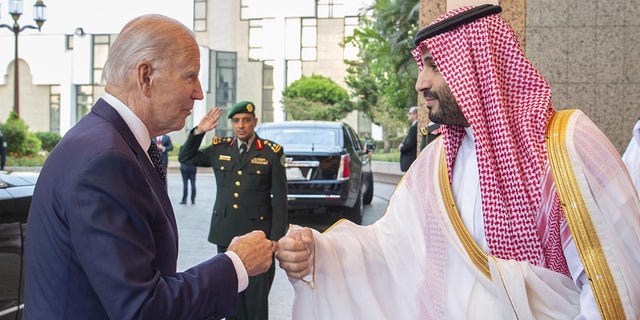US left out as China, Iran come out on top in latest deal with Saudi Arabia: ‘Sign of the times’
After years of hostile and frayed relations, Iran and Saudi Arabia have agreed to reestablish diplomatic ties and reopen mutual embassies – a deal reportedly brokered by China that has raised eyebrows across the globe.
Over the weekend, Iran claimed that Saudi Arabia extended an invitation to Tehran for a state visit, but details surrounding the meeting remain unclear.
Since news of the deal emerged, concerns have mounted over what this newly repaired relationship could mean amid failed U.S.-Iran nuclear talks, Israeli attempts to normalize ties with regional neighbors under the Abraham Accords, and China’s growing influence in the Middle East.
SAUDI ARABIA INVITES IRANIAN PRESIDENT RAISI FOR VISIT AFTER RESTORING DIPLOMATIC TIES: REPORT
BIGGEST WINNERS OUT OF THE LATEST IRAN-SAUDI DEAL
The March 10 agreement between Tehran and Riyadh not only brought renewed light to the complex dynamics that have flourished within the Middle East for decades, it also depicted how tense U.S.-China relations are shaping foreign policy across the globe.
“The Chinese are keen to actually make this look like a zero-sum – the Chinese win, America loses,” Behnam Ben Taleblu, a senior fellow with the Foundation for Defense of Democracies, told Fox News Digital. “They want to have the impact of this agreement do things for them in the policy space.”
“That means the slow erosion of the U.S. force posture in the region, the slow erosion of the U.S.-led order in the region,” he said.
In addition, China has a vested interest in ensuring stability between Saudi Arabia and Iran as they are both its largest trading partners in the Persian Gulf.
Tehran also has a lot to win with the new agreement.
After being the region’s pariah state for years and facing down increased pressure from the West over its development of nuclear weapons along with aid to Russia amid the war in Ukraine, Tehran is looking to repair ties with its neighbors.
Repairing geopolitical relations in the Middle East would not only serve as a boost to its economy, it could also position Tehran with more influence over regional matters like the Israel-Palestinian conflict.
CHINA, RUSSIA, IRAN TEAM UP FOR MILITARY EXERCISES IN MIDDLE EAST

BIGGEST LOSERS OUT OF THE DEAL
Under the Abraham Accords, which were brokered by the U.S. beginning in 2020, Israel began normalizing ties with Middle Eastern nations like Bahrain and the United Arab Emirates (UAE), but these nations have also begun repairing ties with Iran – throwing into question Israel’s regional security.
“Iran is trying … to break out of this land of isolation that the Abraham Accords had imposed on it by saying to the world, ‘I beat Jerusalem to Riyadh,’” Taleblu said, noting that Saudi Arabia has not yet signed on to normalize ties with Israel. “It’s trying to downgrade or devalue the Abraham Accords and counter its expansion.”
But the Middle Eastern expert also said that Iran has a long-term goal that it is ultimately working toward – ending U.S. influence in the region.
“The Iranian modus operandi has been to divorce some of these GCC countries from their external patron,” he said in reference to the Gulf Cooperation Council, a trading block made up of the region’s top economic players like the UAE, Saudi Arabia, Bahrain and Qatar. “Which is a military, diplomatic and economic rope-a-dope.”
“It doesn’t mean it’s over. It doesn’t mean those countries don’t believe in U.S. power. It means that the regime in Tehran is trying to capitalize on it. And of course, the Chinese are trying to capitalize on it,” he added.
But it’s not only the U.S. and Israel that Taleblu argued did not necessarily come out on top in the latest deal.

Saudi Arabia also does not stand to gain as much as Iran or even China from the agreement.
While Riyadh also could see financial benefits from regional security, a trade partnership with Tehran and in appeasing wishes from Beijing to settle relations in the Middle East, some of its top issues with Iran are unlikely to be resolved.
Saudi Arabia has been engaged in a proxy war against Iran in Yemen since 2015 and in Syria since at least 2013.
“There is no evidence to suggest that Tehran will all of a sudden do a 180 on some of its most accessible elements of its border and security policy – which is the proxy strategy,” Taleblu said. “If the Saudis think that by opening an embassy this is a release valve for the conflicts … they may have another thing coming.”
CHINA DENIES HIDDEN MOTIVES AFTER BROKERING TALKS BETWEEN SAUDI ARABIA, IRAN

AGREEMENT REFLECTS A ‘SIGN OF THE TIMES’
Taleblu argued that ultimately this agreement is a “sign of the times” and shows that U.S. partners in the Middle East are increasingly stepping back from Washington’s influence.
Partners across the globe, including in the Middle East, are not necessarily looking to severe ties with Washington but are looking out for the best interests of their own nations, even if that means expanding trade and economic ties with the U.S.’s top adversary – China.
“[Washington] is going to have to take off the glasses that say that great power competition is still pied, or segmented or highly regionalized,” Taleblu said. “No, great power competition is a global phenomenon.”
But ultimately the Middle Eastern expert warned against overreacting to the deal and pointed out that a panicked response is exactly what China and Iran are hoping for.
“They’re hoping to have this concern spark something politically, such that the U.S.-Saudi relationship – which is a little bit on the rocks – ends up becoming a U.S.-Saudi divorce,” he said. “People are projecting their views onto this deal, and the more they project their views, the more there is concern, panic and chaos.”
While the agreement appears like a loss for the U.S., Israel and even Saudi Arabia to an extent, Taleblu argued it may not play out this way in the long run.

The expert said the U.S. needs to improve its relationship with Riyadh and then work on expanding the Abraham Accords, noting that Saudi Arabia has cleverly positioned itself when it comes to dealing with a volatile Tehran, which is beholden to trade with Beijing.
“This is akin to a schoolyard fight between Saudi Arabia and Iran,” Taleblu said. “Saudi Arabia, rather than calling the principal, which can punish Iran – the principal [being] the U.S. – Saudi Arabia’s just calling Iran’s parents – China – which may potentially be able to restrain Iran.”
Read the full article Here


